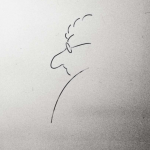Cop Out
Police seizures are forcing reporters to become partners in crime fighting. And even the Supreme Court condones it
In June 1987, CBC reporter Claude Gervais and a cameraman rushed into a post office in Pointe-Claire, Quebec to film angry strikers as they trashed the interior. The item that later appeared on the news did not show the faces of the strikers a stipulation of the union leader who let Gervais in-but some of the unused tape did. Sooner or later, Gervais knew, the cops would come calling. “At first I thought if they came that afternoon I would hide the tapes. I’d use what I needed then hide the tapes, or say to them, ‘I don’t remember where they are.’ But one of my bosses said I couldn’t do that.”
Instead, when the police arrived with a search warrant the day after the story aired, CBC management instructed Gervais to place the tapes in a sealed envelope and hand them over. The envelope remained in a safe at police headquarters for the next four-and-a-half years while the validity of the warrant was challenged in court.
Last November, the CBC was finally forced to surrender Gervais’s tapes to the Montreal Urban Community Police. After a series of lower court decisions and appeals, the Supreme Court of Canada held that the police had the right to search the CBC’s Montreal newsroom, seize the tapes and use them in their criminal investigation.
At the same time, the Supreme Court also ruled in favour of the police in a similar case involving CBC television reporter Rosaire L’Italien of New Brunswick. The Moncton RCMP wanted the tapes from an item produced by L’Italien in September 1988, after demonstrators protesting the land policies of a remote pulp-and-paper company threw Molotov cocktails and set fire to a guardhouse on the company’s property. Like Gervais, L’Italien had to surrender the tapes.
All in all, it wasn’t a great day for journalistic freedom in Canada.
In its six to one decision, the Supreme Court tried to give the news media some protection against unreasonable search and seizure by the police. However, the Charter of Rights and Freedoms, with its guarantee of “freedom of the press and other media of communications” seems to have been at the bottom of the pile of documents the court consulted. Instead, it came up with a set of guidelines for justices of the peace and lower court judges to consider when asked to issue search warrants for newsrooms. One of the guidelines says that a balance must be struck between the interests of the state in fighting crime and the right of the media to gather and disseminate news. But how they’re supposed to walk that fine line is left to the JPs and judges. The other guidelines include determining that the warrant application is sufficiently documented, that the police have exhausted any other sources and that some or all of the information has been broadcast.
Both Gervais and L’Italien are skeptical about the protection the new guidelines actually give journalists. Although the court stated in both decisions that the media are entitled to special consideration because of “the importance of their role in a democratic society,” the fact remains that the police still ultimately have the means to seize journalists’ tapes, photographs and notes. “Those guidelines are very dangerous,” says L’Italien. “I can see a judge deciding in favour of the police 90 percent of the time because they are from the same system.”
It’s a fear shared by many journalists, and it has serious ramifications. The possibility of police interference may inhibit reporters from telling the whole story, leading them to compromise their own standards and shortchange the public. “If a policeman gets in the way every time we do a special story and uses journalists as some sort of tool, then there’s no way for us to do our work,” says Gervais. “There’d be no confidence between journalists and the people we interview. Why should people give me an interview when it’s just going to the police station afterwards ?”
Indeed, the court’s ruling did not recognize the principle of confidentiality- crucial for journalists-between Gervais and the striking workers. It also appears to be less sensitive to television reporters than to those in print. Though videotape is the equivalent of a notebook, often containing material never intended to fall into a police officer’s lap, it is considered more accessible to the police, especially if part of it has been broadcast.
“We would be impeded not only because of the actual execution of the search, but also the fear or apprehension that it was about to happen,” says Michael Hughes, the CBC lawyer in the L’Italien case. “And if the reporter had to go back to the same location because the story is ongoing, the fear of retaliation would have an inhibiting effect on the coverage. You’re inevitably going to hold back.”
Cristin Schmitz, a reporter with Lawyer’s Weekly, is among those concerned that television reporters can no longer grant confidentiality to sources who appear in unedited tape. “Certainly the fact that a majority of the court upheld the seizure of the CBC videotapes suggests that it will be relatively easy for the police to seize videotapes of public events which have been at least partially televised,” she argues. “It will make it harder for TV reporters to protect the unbroadcast portions of their tapes and protect their sources.” Schmitz sees another serious problem with the decision. Though the constitutional right of the media tobe secure against unreasonable search and seizure is recognized, “what bothers me is that the onus here seems to be on the media to prove that it was an unreasonable search,” she says. “The court didn’t analyze under freedom of the press, it analyzed under the search and seizure provisions of the Charter.”
In both the New Brunswick and Quebec cases, the court ruled that the seizure was not unreasonable, but necessary to aid in the police investigations. The police in both instances contended that they needed the tapes because they had exhausted all their resources even though in Pointe-Claire, the warrant was issued only one day after the post office demonstrations, and in New Brunswick, RCMP identification officers were present during at least part of the demonstration.
Short of destroying tapes, documents, photos and notes, the bottom line is that a reporter can eventually be forced to turn information over to the police. And if the police don’t find what they’re looking for in the newsroom, they can search other places, such as the reporter’s home. Another option is to subpoena reporters, forcing them to reveal tapes or notes. If the reporters refuse any of these attempts, they can be thrown in jail for contempt of court.
Both Gervais and L’Italien remain angry about a ruling they feel betrayed their rights as independent reporters. More than anything else, the pair feel squeamish about how easily their work could be scooped up and used for the purposes of criminal investigations. It means that reporters, especially those in the broadcast media, may find themselves straddling, uncomfortably and unwillingly, the roles of journalist and criminal investigator.
“I’m a reporter. My job is to inform the public,” says L’Italien. “If I were working for the police, I’d ask for a paycheque and I’d change my job. I can’t be a reporter and work for the police at the same time.”
Gervais says his experience has given him less faith in the legal process. “I can’t fight the Supreme Court,” he reflects, “but I would have expected that if they were going in this direction then they could have given me more protection.”
Clearly, the state has the upper hand and that makes a lot of journalists, both broadcast and print, more than a little uneasy.
“If the cops had exhausted every other means and it was a serious matter,” says journalist turned-novelist Carsten Stroud, who has worked alongside various police forces during his writing career, “then I think the best thing would be to go to the journalist and say, ‘Have you got any information you can help us with?’ Now the journalist would have to decide yes or no. But at that point, if the journalist refuses, I’m uncomfortable about enshrining this principle in law that the cops can kick in the door and take it.”
by Marie Verdun
Marie Verdun was an Issues Editor for the Summer 1992 issue of the Ryerson Review of Journalism.














































